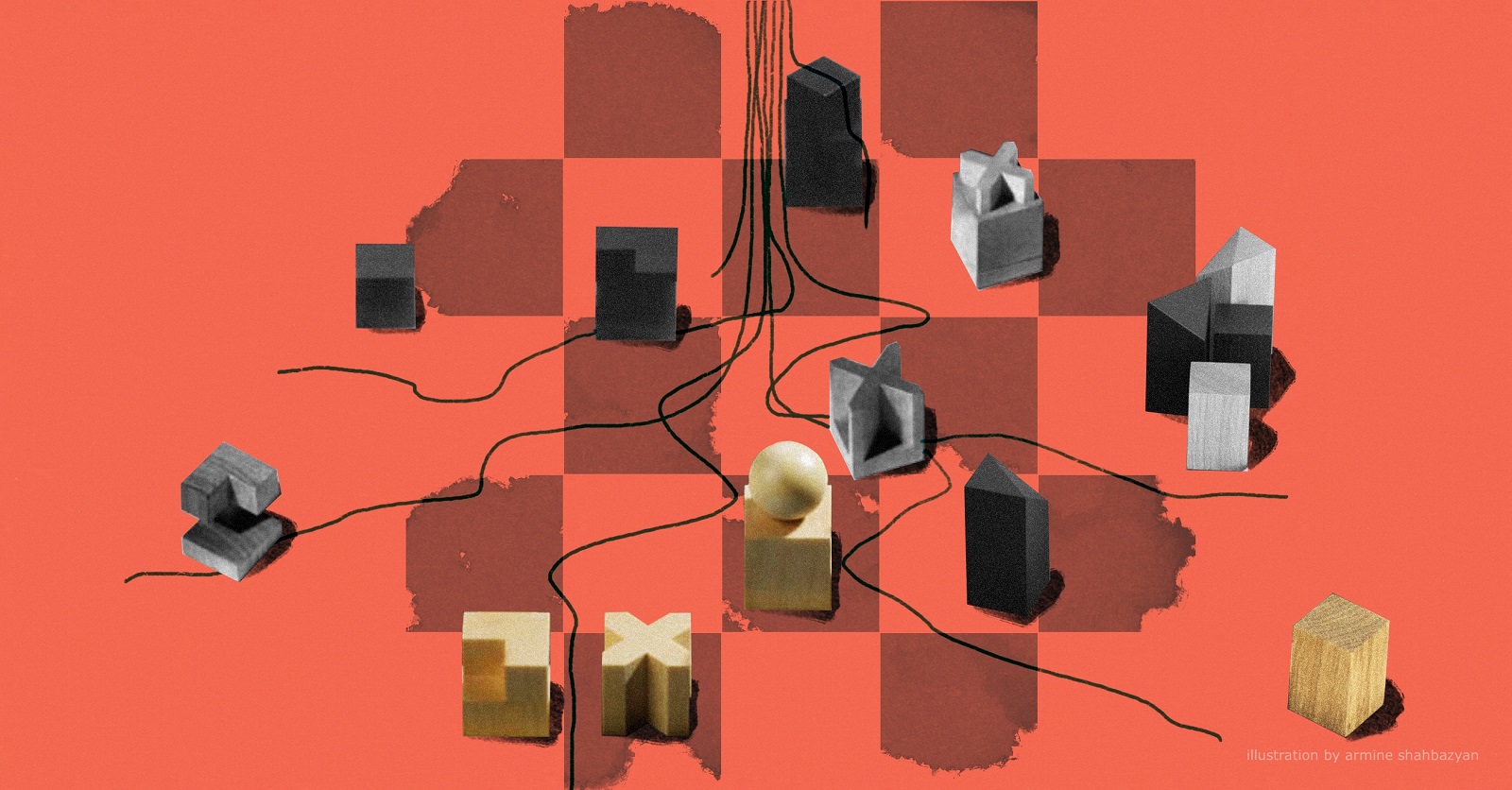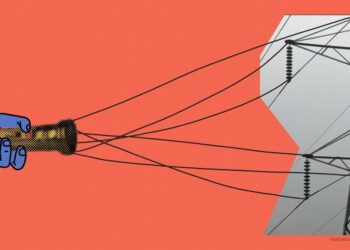
Part I: Deception and Manipulation of the EU and the United States to Absorb Nagorno-Karabakh
Azerbaijan has been using military and diplomatic coercion to achieve its maximalist, expansionist and hegemonistic objectives with regard to Armenia and Armenians. It also employs wide-ranging tools of hybrid war, such as historical revisionism, disinformation, lawfare and cognitive warfare. To achieve its objectives, Azerbaijan has been also deceiving and harassing international actors. In particular, Baku has manipulated the concepts of territorial integrity, sovereignty and non-intervention, and exploited geopolitical dynamics, in particular, Russia’s war in Ukraine.
Stage 1: The 2020 War and Its Preparation
When Azerbaijan launched the 2020 Karabakh war, it set a precedent for the use of military force by autocratic states toward their smaller democratic neighbors for the settlement of disputes. Most international actors thought that Baku would be satisfied with its gains and stop after its victory.
They thought Aliyev would establish control over territories surrounding Nagorno-Karabakh, which had been under the control of Nagorno-Karabakh Armenians since the First Nagorno-Karabakh War. The Armenian control over these territories and the displacement of the Azerbaijani population was indeed problematic from an international law perspective, and it deserves a separate, lengthy discussion.
However, it is crucial to remember that Azerbaijan initiated the First Nagorno-Karabakh War, and even prior to it, there were large-scale massacres of Armenians in major Azerbaijani cities in response to the peaceful movement for self-determination of Armenians in Nagorno-Karabakh. This was followed by massacres and forced displacement of Armenians from various places in Nagorno-Karabakh and Lower Karabakh.
Azerbaijan also imposed a blockade of the Lachin corridor from 1989-1992, isolating the Armenians in Nagorno-Karabakh, while simultaneously shelling them from Aghdam. The Armenian military’s advances beyond Nagorno-Karabakh and eventual takeover of the surrounding regions were reactions to these actions.
It is worth noting that some parts of Nagorno-Karabakh itself and Armenian-populated areas of Lower Karabakh, such as Getashen and Shahumyan, remained under Azerbaijani occupation with no Armenian population since the first Karabakh war.
The seven regions surrounding Nagorno-Karabakh were divided into two groups: five regions that were always subject to return, and Lachin and Kelbajar, considered vital for Nagorno-Karabakh’s security and viability, and its link with Armenia. Various arrangements for these two regions were considered during negotiations between the two Karabakh wars, as detailed by Laurence Broers in his recent article. Later, Armenian nationalist forces, part of the ruling elite, blurred the distinction between the territory of Nagorno-Karabakh Autonomous Region (NKAO), the two linking regions and the surrounding five regions. However, sources involved in the negotiations suggest that there were attempts by Armenian leaders to return those territories, in exchange for an acceptable status and security guarantees for Armenians in Nagorno-Karabakh. Azerbaijan rejected these offers, pursuing maximalist objectives.
Starting from 2005, Azerbaijan directed substantial profits from oil and gas exploitation toward strengthening their army, actively arming and preparing for a new war.
Between the first and second Nagorno-Karabakh wars, Azerbaijan launched an aggressive war of narratives against Armenians. Over time, Baku managed to change the conflict narrative from the existential struggle of Nagorno-Karabakh Armenians for living safely and having self-governance on their indigenous land, to one of occupation, annexation and aggression by Armenia against Azerbaijan. This narrative led some in the international community to overlook the fact that Azerbaijan had initiated massacres of Armenians, as well as all the wars and military offensives, without exception. They failed to realize that Armenian actions were responses to existential threats and the necessity of self-defense in the absence of an international intervention, similar to Kosovo.
During the 2020 war, Azerbaijan broke ceasefires mediated by France and the U.S., continuing the war until it established control over parts of Nagorno-Karabakh. This action disrupted the region’s territorial cohesion, mirroring a similar occurrence in the first Karabakh war. Moreover, Azerbaijan rejected the idea of deploying international peacekeepers, a proposal previously considered during peace negotiations. Instead, they accepted a Russian-mediated ceasefire and the deployment of Russian “peacekeepers” without an international mandate. While skepticism persisted regarding the commitment of Russian peacekeepers to facilitate a resolution to the conflict and safeguard human rights, there was an expectation that they would, at the very least, prioritize the security of Armenians in Nagorno-Karabakh.
Stage 2: After the 2020 War
However, Azerbaijan did not stop after the establishment of a ceasefire regime in Nagorno-Karabakh. Baku declared the conflict resolved, rejected the mediation of the OSCE Minsk Group, denied any autonomous status to Armenians in Nagorno-Karabakh, and refused to discuss any internationally-mandated presence (UN, OSCE or EU). They also began advocating against the Russian peacekeeping presence. The Azerbaijani propaganda machine started claiming that Nagorno-Karabakh is not an indigenous land of the Armenians, but rather, Armenians were artificially settled there by Russians or Persians, and are now just one of the many minorities of Azerbaijan. Informally, the Azerbaijani propaganda line labeled Armenians in Nagorno-Karabakh as “occupiers,” “illegal settlers”, “migrants” or even “terrorists” in their native land. Azerbaijan’s denial of Nagorno-Karabakh as an entity aimed to erase the distinction between Nagorno-Karabakh and surrounding regions, absorb it into the wider Karabakh region, reduce Armenians from a majority to a minority, and strip them of self-governance. As a result, the principle of self-determination, which was recognized for Nagorno-Karabakh in OSCE official documents, has been effectively tabooed in the context of Nagorno-Karabakh conflict by international mediators.
Taking advantage of Russia’s 2022 invasion of Ukraine and the subsequent absolutization of the principle of territorial integrity, Azerbaijan promoted the narrative that the international community was ignoring the violation of its territorial integrity by Armenia unlike Russia’s violation of the territorial integrity of Ukraine. While acting exactly like Milosevic, it prevented the application of mechanisms used for the settlement of the Kosovo conflict and deepened false associations between the Nagorno-Karabakh conflict and Russian-inflicted conflicts in Ukraine (Donbass and Crimea), Georgia (Abkhazia and South Ossetia) and Moldova (Transdniestria) that it had created through its aggressive war of narratives throughout 30 years.
In parallel, Azerbaijan also started military offensives and creeping annexation of Armenia in 2021-2022. Azerbaijani authorities and experts urged Armenia to recognize Nagorno-Karabakh as part of Azerbaijan, threatening to claim the Armenian region Syunik, which they call Zangezur, if Armenia refused. The United States, the EU, and even Armenian authorities seemed to believe that Azerbaijan’s expansionist actions involved a combination of mirroring and coercion strategies aimed at establishing control over Nagorno-Karabakh and that these actions would cease following the mutual recognition of the territorial integrity of the two countries. Some Armenian experts claimed that the loss of Nagorno-Karabakh would only intensify Azerbaijan’s expansionist claims to Armenia but it was not well comprehended by the West.
Thus, Azerbaijan manipulated the U.S. and the EU to persuade Armenia to recognize Azerbaijan’s territorial integrity and subsequently, Nagorno-Karabakh as part of it. Concurrently, they were to convince Azerbaijan to accept a degree of autonomy for Nagorno-Karabakh Armenians and the deployment of an internationally mandated peacekeeping presence, either by the UN or EU. However, they were unable to convince Azerbaijan to accept these two imperative pre-conditions for ensuring the security and rights of Nagorno-Karabakh Armenians. As a result, the liberal peace policy and soft mediation of the EU and the U.S. proved inefficient to prevent ethnic cleansing in Nagorno-Karabakh.
On one hand, Azerbaijan asserted that Armenia and Nagorno-Karabakh were acting as Russian proxies, framing its gradual ethnic cleansing – initiated a week after Russia’s invasion of Ukraine – as “opening a second front against Russia.” On the other hand, Azerbaijan signed a Joint Declaration on allied interaction with Russia just a day before the onset of the war in Ukraine. Paradoxically, it managed to secure full cooperation from Russia in carrying out ethnic cleansing operations against Armenians in Nagorno-Karabakh.
Azerbaijan’s categorical rejection of any special status to the Armenians in Nagorno-Karabakh, in contrast to their autonomy even during the Soviet period, mirrors Milosevic’s abolishment of Kosovo’s status in the 1990s. This stance contradicts the common international norm for such ethnic entities, as seen in Western Europe where Scotland and Northern Ireland, Corsica and New Caledonia, Catalonia and Basque country all enjoy high levels of autonomy.
Azerbaijan’s rejection of any international (UN, OSCE or EU) presence in Nagorno-Karabakh was contradicting the practice of comparable conflicts in the world that have required a long-term international peacekeeping presence. Autocratic Azerbaijan, promoting ethnic hatred against Armenians for decades, claimed that it would ensure the security of Armenians in Nagorno-Karabakh and uphold their human rights in accordance with its constitution of a unitary country, without any status of autonomy.
Azerbaijan branded the intended subjugation of Nagorno-Karabakh Armenians as “integration” — a positive concept in the U.S. and the EU, implying equal opportunities and rights for national minorities, such as migrants. However, in a country ranked as one of the worst in Eurasia for human rights and democracy by Freedom House and European watchdogs and using ethnic hatred against Armenians as an instrument of nation-building, “integration” meant depriving local Armenians of their ethnic identity; downgrading their human rights to the most basic level, stripping them of civil and political rights, and establishing full political control over them.
After convincing Armenia to distance itself from the Nagorno-Karabakh issue, and promoting only a vague notion of security and human rights instead of international protection and self-governance, the U.S. and the EU tried to convince Azerbaijan to conduct direct talks with Nagorno-Karabakh’s de facto authorities. However, Azerbaijan, in coordination with Russia, rejected this Western facilitation. It met Nagorno-Karabakh representatives a few times only under Russian facilitation, with negotiations focused on disarmament and surrender, not on their rights and security.
After achieving new military advances between March and August 2022, Azerbaijan imposed a blockade in December 2022, weaponizing energy, food and humanitarian aid, as it had done in 1989-1992. As the situation became critical, another military offensive was launched in September 2023, establishing control over the territory, including the capital. Baku called this a “counter-terror operation”, using the same language as Serbian commanders in Srebrenica, or “special operation” as Putin calls its war in Ukraine.
While denying an international peacekeeping presence and receiving a green light from Russian peacekeepers to impose a blockade and launch a military offensive against Armenians in Nagorno-Karabakh, Azerbaijan targeted the local civil self-defense force. It labeled its members, male conscripts from the local population, as “terrorists”, denying the right of local Armenians for self-defense. This incited substantiated fears about possible retaliation –– the killing or arresting of all male Nagorno-Karabakh Armenians. Concerns escalated further after a fuel depot explosion, which claimed as many lives as the offensive itself, primarily among the male population. Eventually, the resilience of Armenians in Nagorno-Karabakh diminished, leading to a mass exodus, and arrest of its leadership.
Through its blockade and military offensive of Nagorno-Karabakh, Azerbaijan ignored the provisional orders of the International Court of Justice, as well as warnings by the U.S., EU and other actors that the ethnic cleansing of Armenians would not be acceptable. After using the EU and U.S. for the recognition of Nagorno-Karabakh as part of Azerbaijan, Azerbaijan also made them legitimize the demand for opening the Aghdam road as a precondition for unblocking the Lachin road in July 2023. While the Washington and Brussels seemed to think that Azerbaijan needed the opening of the Aghdam road to deliver humanitarian assistance to Nagorno-Karabakh and unblocking access to Nagorno-Karabakh through the “integration” of Nagorno-Karabakh Armenians in Azerbaijan, Azerbaijan’s agenda was to establish full military control and either political subjugation, or preferably, the depopulation of Armenians from Nagorno-Karabakh. Moreover, Azerbaijan initiated the military offensive on September 19 immediately after the de facto authorities of Nagorno-Karabakh agreed to open the Aghdam road.
Stage 3: After the Collapse of Nagorno-Karabakh
After the abolition of the de facto state and the mass exodus of its population, Azerbaijan declared the “full restoration of its sovereignty and territorial integrity.” Moreover, it started denying that Armenians were ethnically cleansed or even forcibly displaced from Nagorno-Karabakh, insisting that they left voluntarily because they were afraid of retaliation for their crimes or because they are racist and don’t want to co-exist with Azerbaijanis. Azerbaijan started behaving as if it had not implemented a wide range of measures aimed at the ethnic cleansing of Nagorno-Karabakh Armenians over the course of three years, refuting the blockade and legitimizing the military offensive. This denial contradicts a number of key norms of international law and relations, which do not authorize the metropole state to use force or other means of oppression and collective punishment against an ethnic entity seeking self-determination.
Azerbaijan aimed to neutralize strong international condemnation, in particular, by the EU and U.S., claiming that if Armenians stayed, their human rights would be protected and they would enjoy security as all citizens of Azerbaijan; thus they can return if they apply for Azerbaijani citizenship. However, Baku proceeded to demonstrate the establishment of a military dictatorship in the territory through performative actions such as military parades, Azerbaijan’s President Aliyev walking over the flag of Nagorno-Karabakh in the former premises of its governance bodies, destruction of monuments and properties. These actions made it essentially impossible for Nagorno-Karabakh Armenians to consider returning without an internationally mandated peacekeeping presence and the restoration of a degree of self-governance.
The ethnic cleansing of Nagorno-Karabakh Armenians received mild criticism from the U.S. and EU. As the EU Council refrained from issuing a condemnation statement, the High Representative of the European Union for Foreign Affairs and Security Policy, issued a statement on its behalf. Despite the statements, there were no sanctions or, using the EU term, “restrictive measures” imposed. The situation was influenced by the lack of consensus among states that were dependent on gas and oil from Azerbaijan and had other common interests with the country. Azerbaijan neutralized the strong reaction of the EU and U.S. to its actions, in contradiction to their values of human rights and democracy, by leveraging its role as a supplier of gas to the EU and its individual member countries.
However, despite its increased role as an alternative energy supplier to Russia in light of the war in Ukraine, Azerbaijan started partially supplying Russian gas to Europe for a higher price, the profits of which likely contribute to the defense industry of Russia and the continuation of the Russian war in Ukraine. Moreover, while Azerbaijan was trying to get rid of the Russian peacekeepers as an “occupying force” in 2021-2023, and the U.S. and the EU thought that Azerbaijan’s establishment of control over Nagorno-Karabakh would end the Russian military presence in the region, Russian peacekeepers have not left Nagorno-Karabakh since the mass exodus of Armenians. Russia and Azerbaijan are discussing their continued stay to “protect buildings and cultural monuments”, and de facto, the Russian “peacekeeping contingent” have already transformed into a military base in exchange for not preventing the ethnic cleansing of Nagorno-Karabakh.
The lack of sanctions and absence of strong condemnation by the U.S., EU and other actors were also conditioned by the belief that once Azerbaijan achieved the abolishment of Nagorno-Karabakh as a de facto state and the full displacement of its Armenian population, it would sign a peace agreement with Armenia. It was assumed that if Armenia lets Nagorno-Karabakh go and doesn’t raise the issue of its ethnic cleansing vocally, Azerbaijan would stop its territorial claims, military offensives and creeping annexation of sovereign Armenia. They likely thought that Azerbaijan was using territorial or expansionist claims towards Armenia as a coercion tactic and would not pursue them further after it absorbed Nagorno-Karabakh. The EU and U.S. thought that soft mediation would be more effective than strong condemnation and sanctions that may have led to even less constructive behavior by Azerbaijan, its increased obstructionism of the peace process and its more unmanageable behavior.
Optimistic expectations by the West and Armenia did not materialize. After absorbing Nagorno-Karabakh, Azerbaijan began obstructing the Western facilitated peace process and began increasingly aligning with Russia against Armenia. It also intensified its historical revisionism, territorial claims to Armenia, and efforts to undermine Armenia’s sovereignty. With regards to reputable international actors, Azerbaijan progressed from deceiving and manipulating to harassing and blackmailing them for any criticism of Azerbaijan and any support to Armenia.
Impact on the Human Rights-based International Order (Kosovo, Georgia, Gaza, Northern Cyprus)
Azerbaijan’s use of a wide range of tools to achieve the ethnic cleansing of Armenians in Nagorno-Karabakh and the abolition of their de facto state signified the end of the human rights-related rules based international order and is likely to serve as a dangerous precedent for other conflicts.
Kosovo
While Kosovo became a precedent for international recognition and maximum support of a de facto state, Nagorno-Karabakh became a precedent for the elimination of a de facto state.
This is already being manipulated by Serbia’s President Vucic, who hinted that Aliyev is his role model and expressed surprise that he is able to get away with everything he does. In December 2023, Vucic stated that Aliyev is “the most democratic guy in the world”, and more importantly, that he would use the precedent of Azerbaijan’s takeover of Nagorno-Karabakh as a model for Serbia’s aspirations to regain control over Kosovo: “They waited 27 years for special geopolitical circumstances” to return Nagorno-Karabakh to Azerbaijan. Naturally, Serbia cannot follow suit due to the presence of KFOR and EULEX in Kosovo, but it also means that NATO and the EU cannot have an exit strategy from their peacekeeping presence in Kosovo. On February 23, 2024, Vucic also implied that China has a right for a “military solution” for Taiwan, in his interview to the Chinese state TV. Unsurprisingly, while Azerbaijan supplies energy to Serbia, the two countries signed a Military Cooperation Plan in February 2024, and Serbia has become one of the main suppliers of military equipment and weapons for Azerbaijan.
Georgia
Due to Azerbaijan’s manipulative and false narratives, some figures in Ukraine and Georgia also call what happened as the full restoration of Azerbaijan’s territorial integrity and sovereignty as a “good precedent” in the post-Soviet space. Former President of Georgia Saakashvili hinted that Georgia should follow Azerbaijan’s example, presumably meaning the restoration of its territorial integrity through a military intervention in Abkhazia and South Ossetia. It would be problematic for an aspiring EU country aiming to increase its standards of democracy and human rights to follow the example of autocratic Azerbaijan to restore its territorial integrity through a military intervention and refute any level of self-governance of Abkhazia.
Gaza
Azerbaijan first rejected and neglected, then deliberately misinterpreted and even mocked the provisional measures by ICJ, to justify its non-compliance with them, i.e. continuing the blockade of the Lachin corridor, continuing to weaponize energy, food and humanitarian aid, and conducting military and psychological operations to make the conditions of life for Nagorno-Karabakh Armenians unbearable leading to their forced displacement. The failure of ICJ provisional measures to prevent ethnic cleansing also caused certain reputational harm to the ICJ and concerns about the lack of its enforcement mechanisms in the context of the Israeli-Palestinian conflict also arose. In the January 11 hearing of the South African case v. Israel, Blinne Ní Ghrálaigh KC, an Irish lawyer serving as Counsel and Advocate for the Republic of South Africa to the International Court of Justice, referred to the fact that ICJ provisional measures did not prevent the forced displacement of Armenians from Nagorno-Karabakh. Not only did they not prevent it, but they also created a precedent for non-implementation of ICJ orders that are considered legally binding. The UN Security Council did not follow up on ICJ measures on Nagorno-Karabakh and did not adopt a resolution to condemn their violation even after the ethnic cleansing had occurred.
Non-implementation of ICJ measures by Azerbaijan has created a precedent for Israel’s actions in Gaza, which may be not a coincidence, given the close military cooperation between the two countries. Israel’s prevention of the entry of humanitarian aid to Gaza and its attempt for a forced displacement of Palestinians intensifies those concerns and echo the precedent about the prevention of the ICRC, as well as Armenian and French humanitarian aid to Nagorno-Karabakh by Azerbaijan and its forced displacement of Armenians through a military intervention.
Northern Cyprus
At the same time, the possible implications for the above mentioned territories don’t mean that Azerbaijan has adopted a principled approach rejecting unrecognized de facto states. Baku has a manipulative position based on double standards also in relation to this issue. As its most recent manifestation, Azerbaijan has invited the Turkish Republic of Northern Cyprus, as an observer member, to the forthcoming summit of the Organisation of Turkic States to be held in Karabakh. While Azerbaijan has a different position from Turkey when it comes to Kosovo, it would not be surprising if Azerbaijan decides to recognize Northern Cyprus based on Turkic unity and the “might makes right” notion, i.e. legitimization of the coercive power to seize control, applied by totalitarian regimes.
Reputation of the U.S., EU, ICJ and Other International Institutions
All of these facts undoubtedly undermine the reputation of key international actors who were not able to prevent ethnic cleansing and who did not condemn or sanction Baku. The striking contradiction to how the same actors have treated similar conflicts in other regions, such as the Kosovo conflict, strengthens popular stereotypes about the prioritization of geopolitical interests by those actors. They also generate suspicions about their commitment to the values of human rights and democracy or their leverage to protect the values they are committed to. It undermined the role of the UN Security Council by not authorizing an internationally-mandated peacekeeping or even humanitarian mission in the zone of a long-lasting conflict with deep grievances. Altogether, it is yet another indication of the surrender of the rules-based international order to geopolitical interests and power games of an alliance of autocratic states with ambitions of hegemony.
February on
EVN Report
Opinion
Between State and Fatherland: A Tale of Two Mountains
Mount Ararat doesn't stand as an obstacle to building a functional state, and suddenly loving Mount Aragats will not help us achieve our goals. Before we jettison our national symbols en masse, we need concrete plans and state-driven programs to improve the lives of an already beleaguered nation, writes Daniel Tahmazyan.
Read moreCyber Operations and International Law
In the ever-evolving landscape of modern warfare, the significance of cyber operations has grown significantly, providing nations with additional means to project power, exert influence and secure strategic advantages. Davit Khachatryan looks at the contemporary nature of conflicts in the digital age and their adherence to the foundational principles established by the UN.
Read moreCan Armenia Be Independent?
In a voluminous collection of texts, historian and former diplomat Jirair Libaridian examines the reasons behind the moral, military and intellectual defeat of the Armenian elite in the context of three issues: the contemporary history of the Republic of Armenia, the Nagorno-Karabakh conflict, and Armenian-Turkish relations.
Read moreEconomy
Growth and Trade Slow, Inflation Eases
Armenia’s statistics agency recently released its annual report on a number of socio-economic metrics covering sectors from trade to tourism to employment and inflation. Hovhannes Nazaretyan presents some of the more interesting findings reflecting the state of the country.
Read moreThe Pitfalls of Deregulation and Competition in Armenia’s Electricity Market
Will the introduction of competition in the retail electricity market benefit consumers or will deregulation lead to market manipulation, price increases and potentially harmful conditions, especially for residential customers? Economist Ara Khanjian explains.
Read moreRaw and Unfiltered
Deciding to Untie the Knot: Divorce Rates on the Rise
Over the past decade, the number of marriages in Armenia has been decreasing, while divorces are on the rise. Gohar Abrahamyan looks at the psychological, social and financial implications of deciding to untie the knot.
Read moreThe Crossing: Armenians Arriving in Los Angeles via Mexico
There has been a dramatic increase in the number of Armenian nationals crossing the U.S.-Mexico border following the 2020 Nagorno-Karabakh War. This trend speaks to the urgency and desperation of those leaving a country plagued by conflict. Maral Tavitian’s investigation.
Read moreArts and Culture
“An Intimate Expression of My Feelings”: Zabel Yesayan’s Unpublished Letter
A copy of an unpublished letter that Zabel Yesayan had written to Armenian-American artist Hovsep Pushman was recently discovered in the archives of literary scholar Arpik Avetisyan, the author’s grandmother. The letter reveals the depth of Yesayan’s introspection and emotionality and is presented here for the first time.
Read moreEt Cetera
Two Films From One Fountain
The juxtaposition of two cinematic adaptations of the same literary work reveals polar perceptions of history, tradition, national culture and lifestyle. And by doing so, it indicates that the boundaries of "Armenian cinema" are much wider than they seem.
Read moreDaniel Dznuni: The Interrupted Flight, Part 2
Armenia’s first and only cinema mogul, Daniel Dznuni, was accused of sabotaging the work of Armenfilm in 1936. After spending several years in prison, he was released but never returned to the theater. Part II of Anush Vardanyan’s exploration of Dznuni’s life and work.
Read more













Ms. Sossi Tatikyan irgnores the elephant in the room, intergovernmental organizations are unable to effectively use sanctions, boycotts, the only tools at their disposal to curb the actions of oil-rich states. Azerbaijan’s oil will last about 12-14 more years before the oil runs out. IGOs have tried to pressure Russia, to no effect. If the West had not fought Operation Desert Storm in 1991, mere sanctions would not have dislodged Iraq from its occupation & plunder of Kuwait. Previously, oil-rich Iraq under Saddam Hussein waged a war of aggression on Iran. The International Community had no tools to influence Iraq. Again, sanctions did not have much of an affect on Qaddafi’s Libya. Sanctions have had no affect on Iran’s pursuit of advanced nuclear technology & long range ballistic missiles and rockets to launch satellites.
Sanctions have had no effect on Maduro’s Venezuela’s treatment of the Pro-USA opposition. Boycotts have had no effect on Saudi Arabia’s treatment of critics, such as Nimar Al Nimar.
There is a zero-chance that IGOs can fashion a regime that is harsher than the sanctions imposed on Russia & Iraq in the 1990s. Armenians need to completely focus on the cheapest methods of strengthening their national security-regime. The international community will always be “deeply concerned
& ask ”both sides to use dialogue” even as the last Armenian dies or departs her dying homeland.
I am not ignoring anything, I have written about energy factor in my other article. But this article is about the narratives and cognitive manipulation. If you are not able to see anything beyond geopolitics, then it is a very limited view of the contemporary warfare and diplomacy.
And I am also extensively writing about the need of national security / defense reform, which is one of my primary focus in other articles. If you expect one article to address all issues, then it will always be a brief journalistic shallow article.